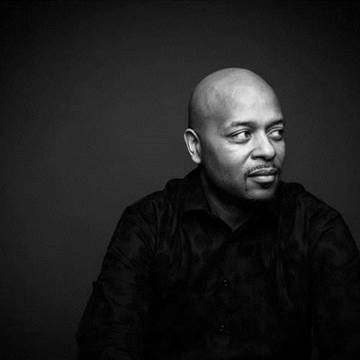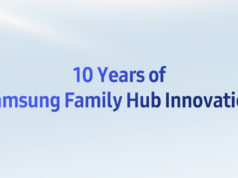There’s this old Greek proverb that says, “A society grows great when old men plant trees whose shade they know they shall never sit in.”
Donell Creech, co-founder of MVMT50, considers himself to unofficially be one of those old men, especially when it comes to diversity in the tech industry.
MVMT50, a coalition of black tech professionals, has worked to improve employment diversity, cultural representation and leadership development in the innovation, technology and digital sectors.
In addition to presenting its own programming this year as part of the annual South by Southwest (SXSW) festival, Creech said they are also placing an emphasis on highlighting the diversity-focused programming of others.


“Someone has to highlight the fact that we are -; it is important. You have to raise the awareness,” he told NBCBLK, adding that SXSW is such a large event that it is easy to overlook much of the programming. “If everyone is off in siloes doing their own thing then it could lead participants to believe that the black experience isn’t well represented if they aren’t looking for it. There is nothing in place designed to really say, ‘this is where the people of color are,’ so that’s our focus this year.”
This year marks the 30th year of SXSW, the annual film, interactive media, music festival and conference conglomerate in Austin, Texas. Over the years the event has grown in size however the concentrated effort to target programming for African Americans, has only manifested in the past five or six years, said Creech.
“In that time, we have only been able to make a dent,” he said. “It is important that we provide first timers with an idea of what’s available.”
MVMT50 is continuing its work on developing The Diversity360: Annual State Of Diversity In Tech Report, their attempt in streamlining the conversation and structuring “strategies for effective progress.”
Functional diversity of the Valley
With the assistance of Maya Beasley, co-founder of the T10 Group, they’ve made some headway in finding support and funding for the report. But it is has been a slow process, Beasley admits.
“The report is our opportunity to provide assessments and ongoing accountability of tech companies and their efforts to diversify. We can use the report to help figure out what the best practices actually are,” she told NBCBLK. “Figuring out what companies are doing and then delving into real case studies could be beneficial to the cause. There are some companies that are becoming more diverse, so lets figure out what they are doing and then share that information with others.”
We want to provide concrete examples beyond just moving to Silicon Valley and creating an app. The goal is to lay a visible path for us to see us exceeding. — Donell Creech
Most companies, according to Beasley, do not provide their diversity numbers at present. There are only about 20 or 30 odd companies that have been releasing data within Silicon Valley, said Beasley. And getting them to provide their data is like pulling teeth.
Beasley reports that most companies have a diverse tech workforce, contrary to popular belief, however it’s the type of diversity that is concerning.
“While numbers are low for African Americans and Hispanics, 29% of the tech workforce in Silicon Valley are foreign-born nationals. A third of their tech workforce are foreign nationals,” she said. “Let’s be real, that’s diversity. We cannot say there isn’t already functional diversity. Its just that the workforce is not made up of diverse Americans.”
And there are some limits to the data they do have, said Beasley. The data is spelled out in percentages that do not provide the hard numbers of the workforce makeup.
Based on the 2015 Meta census of the American Community Survey, in Silicon Valley, non-Hispanic African Americans make up 2.2% of the tech workforce, non-white Hispanics make up 4.7%, non-Hispanic whites make up 33%.
The numbers are different in other areas of the country depending on the region and its population.
For example, in the New York/New Jersey metro area, 7.3 % of the tech workforce are Black Americans and 9.6% are Hispanic American.
“And while some would argue those numbers are not exactly comparable because the workforce size of Silicon Valley is larger than in New York, many would be surprised to know that idea is not true,” Beasley said. “In Silicon Valley, the workforce is 241,000 while in New York the workforce is 209,000 tech workers.”
The numbers are also interesting in Washington, D.C. and Atlanta.
- DC metro area – Black American tech workforce, 17.1%. Foreign workforce, 8.9%. DC has more 255,000-tech workers.
- Atlanta — 20.6% Black American and the workforce is made up of 128,000.
“It behooves us to point out these differences and that having a diverse workforce impacts tech’s bottom line,” Beasley said. “Having more American Blacks and Hispanics makes tech companies better and stronger. Maybe these things companies would do genuinely after seeing the numbers.”
Moving the needle with diverse programming
This year at SXSW, Creech is focused on highlighting all Black-targeted or Black-led programming while continuing their work.
“Diversity has been the headline across the nation for the last three years, but the needle is just barely moving,” Creech said. “Technology is us and we want to provide concrete examples beyond just moving to Silicon Valley and creating an app. The goal is to lay a visible path for us to see us exceeding.”
MVMT50 events and programming for this year include their annual Welcome Reception — a staple of the coalition’s SXSW programming on Friday, March 10 — a hackathon, and influencer events.
The HBCU Battle of the Brains will take place for the first time this year, and is targeted towards undergraduate and graduate students from HBCUs. In teams of three to five, they will also work to develop solutions to a complex issue.
“What I am most excited about this year is our talk with Rich Dennis,” said Creech. “Rich is the epitome of the Drake song, ‘Started from the bottom now we’re -.’ He started nothing and now 20 years later he has this successful company.”
Dennis, who is from Liberia and CEO of Sundial Brands, founded the skin and hair care brands of natural and organic ingredients, SheaMoisture and Nubian Heritage, in 1992.
The…







